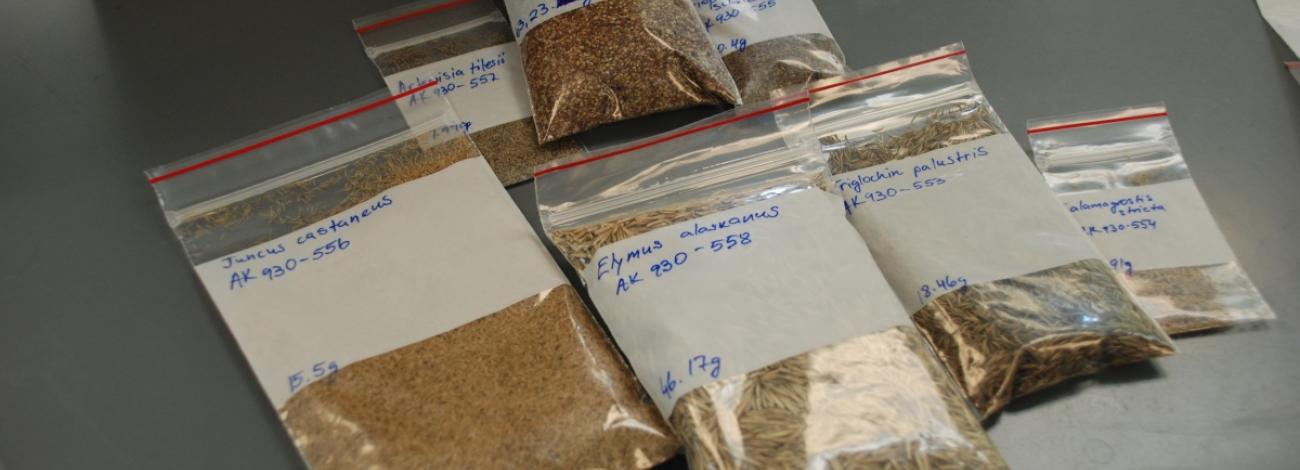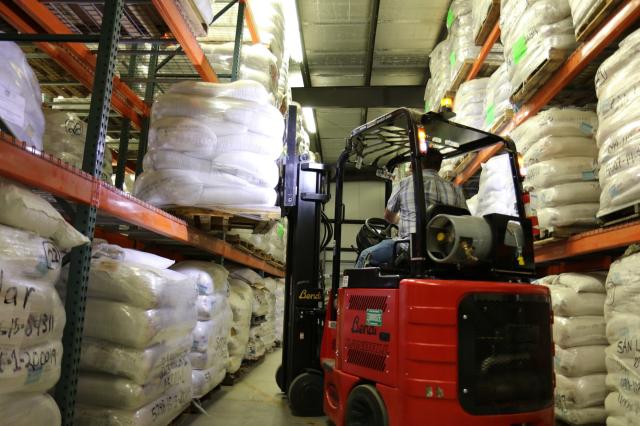
Step 5: Seed Storage
Seed is a valuable resource that requires specialized conditions and facilities to maintain its viability. Adequate storage capacity is necessary for Federal agencies to provide genetically appropriate materials for habitat restoration following intense wildfire seasons or to conduct proactive restoration.
The National Seed Program is a consolidated resource that provides seed for all BLM programs and multiple federal, state, and non-profit partners. The program supports all BLM programs such as post-fire Emergency Stabilization and Burned Area Recovery, Fuels Management, Forestry, Wildlife, Range Management, Abandoned Mine Lands, Energy Development, and Recreation. The National Seed Program manages three large seed warehouses located in Boise, Idaho and Ely, Nevada with a total storage capacity of nearly 3.9 million pounds. Seed storage includes both dry storage and climate-controlled storage. The seed warehouses maintain a high stocking level of around 200 varieties of seed, which can be purchased directly from the warehouses for immediate use or for future planned projects. The BLM Seed Program typically provides 2-7 million pounds of seed annually to seeding projects across the western United States.
The National Seed Program purchases seed from open market commercial sources through competitive consolidated seed contracts. This ensures that seed is purchased at the best value for the government. Since seed contracts are solicited nationally, the BLM Seed Program has the widest commercial-based sourcing of wildland seed in the nation. Seed purchased by the program includes Certified, Selected, and Source Identified seed classes from both wildland collected and field grown sources.
Seed purchased through the National Seed Program is stringently and thoroughly tested to ensure the best quality seed is provide for restoration projects. Every seed lot purchased by the program is officially sampled by the certified samplers and tested at approved state-run seed laboratories. Seed is tested for purity, viability, percent live seed, common weeds, noxious weeds, and for trueness to stated variety/species. The BLM seed program maintains the highest level of testing specifications in the nation to ensure the best chance of seeding success and to prevent the spread of noxious weeds.

